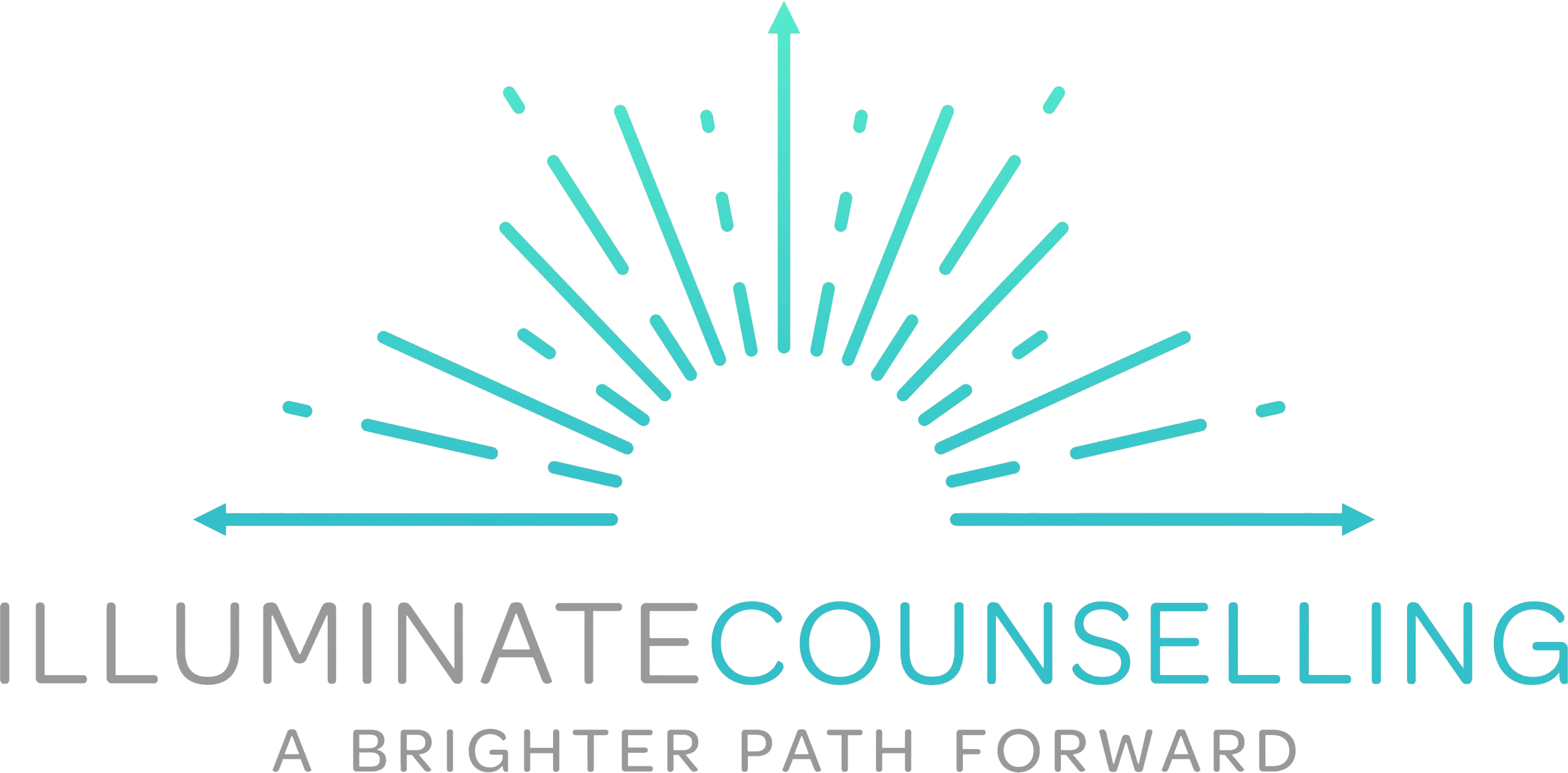Therapy for Birth Trauma
At Illuminate Counselling, we specialize in the world of reproductive mental health, so birth trauma is one of the many areas in which we support our clients. In our work, we talk to clients about trauma being “in the eye of the beholder”; in other words, only you can determine whether something you have experienced was traumatic for you. This word gets tossed around a lot, but “traumatic” really can be used to describe anything that threatens your sense of physical, psychological, or emotional safety. As such, certain relationships, situations, or even witnessing events, can all be traumatic.
Sound familiar?
“The birth of my first child was a nightmare; now I’m not sure that I want to have any more children.”
“I can’t sleep because the images are on replay in my head…””
“I have a hard time trusting doctors after what happened.”
“I seem to go back and forth between emotional outbursts, then feeling numb or disconnected from my life.”
While some people can heal from a traumatic event over time, especially with the love and support of family & friends, others may find that there are profound lasting effects of trauma, which can cause a person to live with deep emotional pain and fear. Sometimes these residual effects will show up in the form of clinical depression, anxiety, panic attacks, or PTSD.
Research has shown that overall, women who describe their births as traumatic have a higher correlation to: reduced self-esteem, feeling more guilt and shame, greater impacts on relationships as she withdraws more from friends and family, as well as a higher chance of developing Perinatal Mood & Anxiety Disorders (PMADs).
Often, the impact of the traumatic birthing experience is heightened if you feel alone in your feelings, and as such, healing often takes place in the presence of a compassionate witness. This is where therapy can come in.
What is PTSD?
Post Traumatic Stress Disorder is a trauma-related disorder which occurs following the exposure to a life threatening situation (or significant perceptions of danger). It is characterized by intense reliving of the event (called intrusive memories), avoiding reminders of the traumatic event, negative moods and thoughts, reactivity, hypervigilance towards potential threats in the environment, and emotional distress (APA, 2013). In some cases, PTSD can include symptoms of depersonalization or dissociation (feeling out of one’s own body, difficulty being in the present moment). Early detection and treatment of postpartum post-traumatic stress symptoms (PP-PTSS) can promote a quicker recovery, which both enhances a mother’s psychological well-being as well as the bonding with her baby (Cook et al., 2018).
Experiences during a traumatic birth
What makes a birth traumatic? The way we define it is: physiological, psychological, and/or emotional distress experienced by a woman during or after childbirth, beyond what might be expected. It is not just about WHAT happened during labour and delivery (i.e. obstetric complications), but also a person’s perceptions of those events. For example, feelings of helplessness and powerlessness are themes that we notice often during these kinds of birth stories, which are much more common than people may realize. Often a woman will describe feeling like she wasn’t listened to, and that things were happening to her rather than being a part of the decision-making. In many of these cases, a woman will, even for just a moment, have believed that either her own life or the life of the baby, was at risk. Understandably, this can be a very scary experience which can even leave women fearing future childbirth or significantly impact their future family planning.
Contributing factors to a traumatic birth
When a woman experiences a lack of control, respect, or autonomy during labour and delivery, this will increase the likelihood that the birth is perceived as traumatic, and/or eventually lead to the development of PTSD. A few contributing factors include any of the following objective or subjective experiences:
– lack of compassion from medical providers
– poor bedside manner (disrespectful or judgmental undertones)
– discriminatory practices
– proper consent not provided (or it felt rushed/was done under duress)
– lack of support from partner or others
– trusted support people not able to attend birth as planned
– poor communication as to what was going to happen before, during, or after delivery
– unplanned interventions
– physical pain or health complications
– health issues for the baby, or a NICU admission
How Can Counselling for Birth Trauma Help?
Explore the physiological roots of your symptoms.
There is power in understanding WHY your body and mind are doing what they’re doing. In learning more about the biology of the stress response, you will learn to appreciate the wisdom in these as survival strategies. This knowledge can help you process with a more compassionate mindset.
Have your suffering, your trauma, witnessed.
We will work with you as an empathetic witness to what has happened, what you have experienced, and how this has impacted your life. Although sharing your story can be a huge act of bravery, it is an essential part of psychological healing. From here, you can focus more on finding joy and presence in your life.
Start feeling safe again in your body and mind.
Traumatic childbirth can disrupt your sense of safety in the world. We will help support you in rebuilding that sense of safety, so you can start feeling more like yourself, and more connected to life again. The early treatment of intrusive posttraumatic stress symptoms postpartum is key to your recovery.
Learn new ways of coping.
Through the process of counselling, you can expect to look at what you’re already doing to support yourself, as well as explore new strategies to add to your toolbox. Developing a sense of internal resiliency can also help minimize the impact of trauma symptoms on your life and facilitate more enjoyment of motherhood.
EMDR for Birth Trauma
EMDR (Eye Movement Desensitization and Reprocessing) is specific approach used in counselling that enables clients to heal from the symptoms & emotional distress that are the result of overwhelming life experiences, including a traumatic childbirth. This is done in a standardized, eight-phase treatment, which involves the use of alternate bilateral physical stimulation (eye movements, taps or tones) while focusing on a specific traumatic memory. The theory is that this process promotes the reprocessing of the dysfunctional information that has been stored related to the traumatic event. Repeated studies show that by using EMDR therapy, people can experience the benefits of psychotherapy that once took years to make a difference. EMDR therapy shows that just as the body can recover from physical trauma, the mind too can heal from psychological trauma (EMDR Institute).
Ready to Get Started?
You don’t need to go through this alone. Our therapists have specialized training in birth trauma and know how to help you process what has happened. If you’re not quite sure what kind of support you need, we’ll be happy to match you with a counsellor that’s the right fit.


